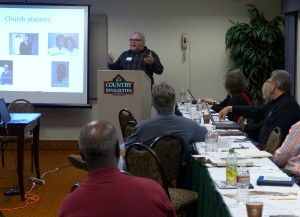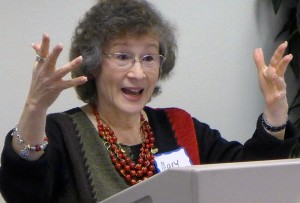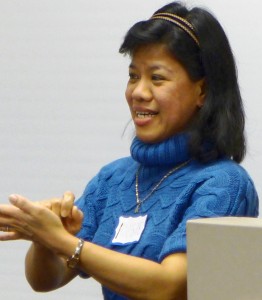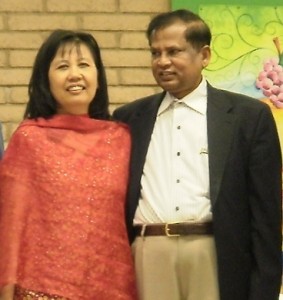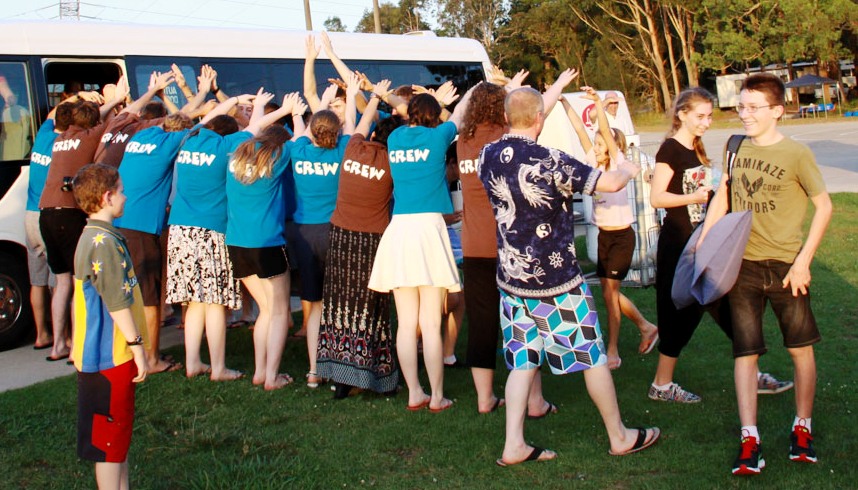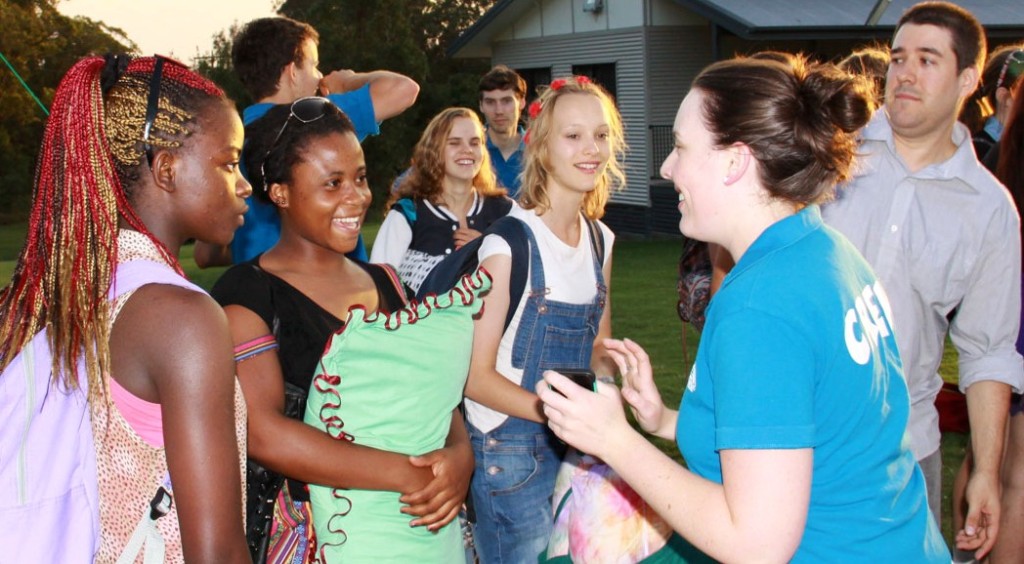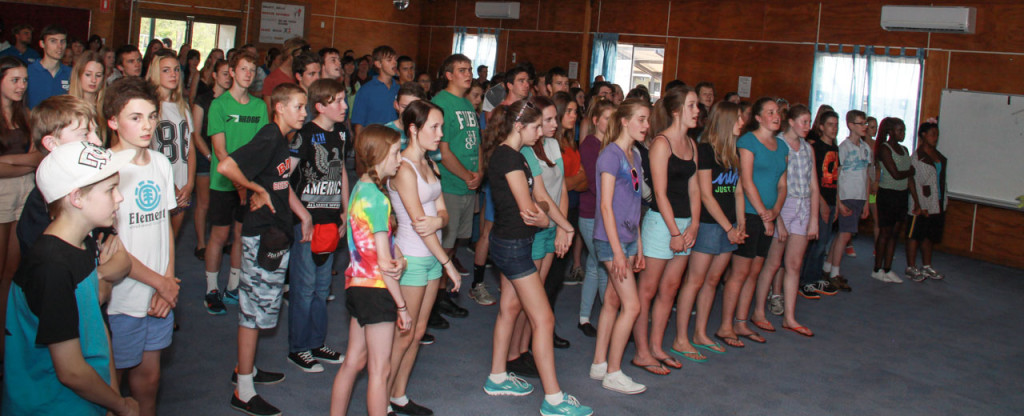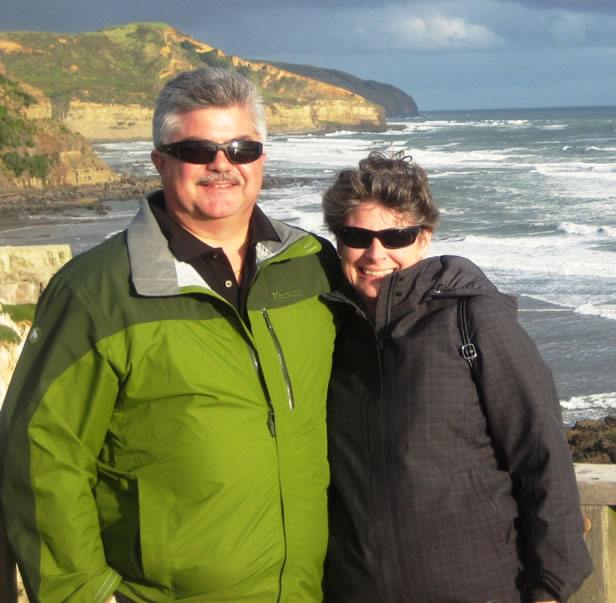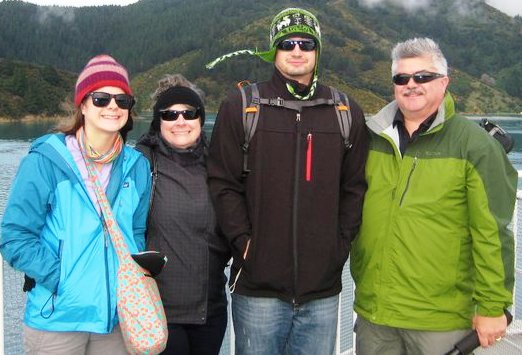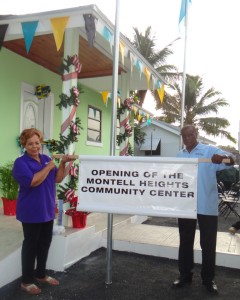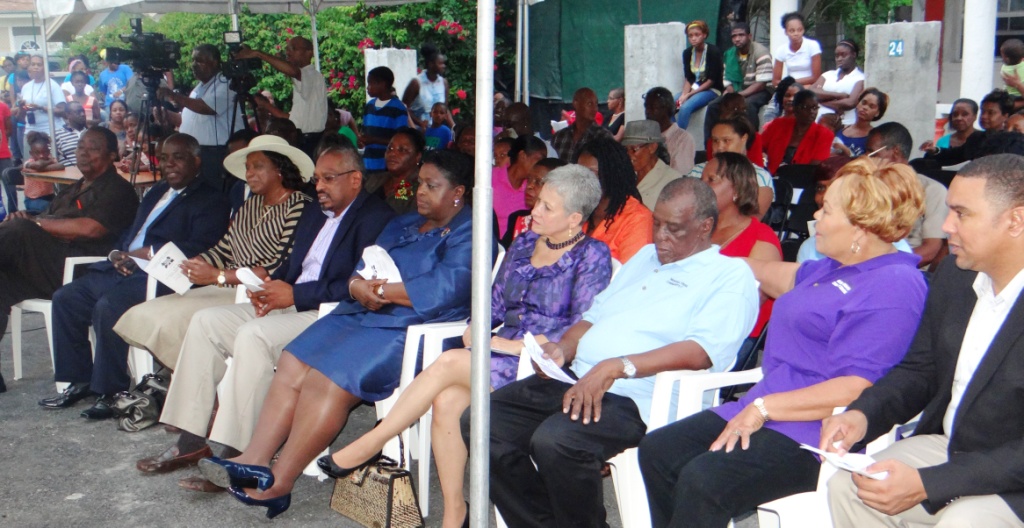This is part 2 of a 6-part series by Gary Deddo on the important, yet often misunderstood, topic of the kingdom of God. For additional articles in this series, click on the corresponding number: 1, 3, 4, 5, 6.
Last time we looked at how Jesus is central to the kingdom of God and is the supreme King of kings and Lord of lords. This time we’ll look at complications related to understanding how the kingdom of God is present now.
The kingdom’s presence in two phases
Biblical revelation conveys two things that are hard to put together: that the kingdom is present but also that it is future. Biblical scholars and theologians have often seized on one of these two aspects, giving either one or the other prominence. But a significant consensus has developed over the past 50 years or so as to how best to grasp these two dimensions of the kingdom. That consensus coheres with who Jesus is.
The Son of God became incarnate by the virgin Mary about 2000 years ago and shared in our humanity and lived under our fallen condition here on earth for 33 years. Seizing our human nature [1] from conception to death, thereby uniting it with himself, he went through our death to resurrection and then after some days of appearances, ascended bodily, that is, remained united to our humanity, to return to the presence of the Father and full communion with him. The result is that, although still sharing in our now glorified human nature, he is not present in the way he was before his ascension. He is, in a way, absent from earth. He has sent the Spirit as another comforter to be with us, but he in his own person is unavailable to us as he was. But he has promised us that he will return.
Parallel to this is the nature of the kingdom. It was indeed “near” and active in Jesus’ earthly ministry. It was so near and available that it called for an immediate response, just as Jesus himself called for a response of faith in him. However, as Jesus taught, his rule and reign had not yet come in its fullness. There was more to come. And that time will coincide with Christ’s return (often called his “second coming”).
So faith in the kingdom includes hope for the coming of the fullness of the kingdom as well. The kingdom was already present in Jesus and continues to be present by his Spirit. But its completion is not yet. This is often summarized by saying the kingdom of God is already, but not yet. George Ladd’s careful work solidified this way of understanding for many orthodox/evangelical Christian believers, at least in the English-speaking world (also see the GCI article at www.gci.org/gospel/kingdom).
The kingdom and the two ages
The biblical understanding clearly distinguishes between two times, two ages, two epochs: the “present evil age” and what is called “the age to come.” We currently live in the “present evil age.” We live in hope of “the age to come,” but we do not yet live in that age. We are still, in biblical perspective, in the present evil age. So we live between the times. Biblical passages that clearly indicate this scheme are ones like these (the NRSV translation is quoted throughout this article—hover over the links to read the cited verse in the NIV translation):
- “God put this power to work in Christ when he raised him from the dead and seated him at his right hand in the heavenly places, far above all rule and authority and power and dominion, and above every name that is named, not only in this age but also in the age to come” (Ephesians 1:20-21).
- “Grace to you and peace from God our Father and the Lord Jesus Christ, who gave himself for our sins to set us free from the present evil age, according to the will of our God and Father” (Galatians 1:3-4).
- “Truly I tell you, there is no one who has left house or wife or brothers or parents or children, for the sake of the kingdom of God, who will not get back very much more in this age, and in the age to come eternal life” (Luke 18:29-30).
- “So it will be at the end of the age. The angels will come out and separate the evil from the righteous” (Matthew 13:49).
- [Some] “have tasted the goodness of the word of God and the powers of the age to come” (Hebrews 6:5).
This two-fold understanding of ages or epochs is unfortunately made less obvious by the fact that the Greek word for “age” (aion) is translated a number of ways, including “eternity,” “world,” “forever,” and “long ago.” Those translations contrast time with endless time, or this earthly realm with a future heavenly realm. While the idea of different ages or epochs includes these temporal or spatial contrasts, it actually brings out a much more comprehensive contrast between qualitatively different kinds of life now and in the future. So in some translations we read that the seeds that grow in certain soils are choked by the “cares of this world” (Mark 4:19). But since the Greek word aion is used, we should also take it to mean choked by “the cares of this present evil age.” So also in Romans 12:2 we read that we should not be conformed to this “world,” but we should also understand this to mean not conformed to this present “age.”
The words translated “eternal life” mean also having the life of the age to come. This is made clear in Luke 18:29-30, quoted above. Eternal life is “eternal,” but there is much more to that life, compared to life in this present evil age, than just being much longer! It’s life that belongs to a whole different age or epoch. The contrast is not just short compared to infinitely long life, but rather between life in our current age that is still fallen—infected by evil, sin and death—and life in the age to come, where all traces of evil will be eradicated. In the age to come, there will be established a new heaven and earth and a new relationship between them. That will be a whole different kind and quality of life—God’s kind of life.
The kingdom of God then is ultimately aligned with the age to come, with the kind of life that is eternal, and also with Christ’s return. Before he returns we live in the “present evil age” and wait in hope for the age to come. We continue to live under fallen conditions, where nothing is ideal—where everything is less than perfect even though Christ is risen and ascended.
The surprising thing, however, is that even though we continue to live in the present evil age, by the grace of God we can experience in part the kingdom of God now. There is a way that it is present here and now before the present evil age is displaced. Unexpectedly, the future kingdom has broken into the present without bringing God’s final judgment and the ending of this age. The kingdom is here and now foreshadowed. We are given foretastes of it. We experience some of its blessings here and now. And we can belong to it, which means belonging to Christ, here and now, even though we remain in this present age. This is possible because the Son of God came into this present age and completed his mission and sent us his Spirit, even though he is not bodily present. We enjoy now the firstfruits of his victorious reign. But there is an interim period (or an “eschatological pause,” as T.F. Torrance liked to phrase it) before Christ returns, where God’s saving purposes continue to be worked out in this age.
Building on the biblical vocabulary, biblical scholars and theologians have used a variety of words to convey this complicated situation. Many, following George Ladd, have expressed this contrast by saying that the rule of God was fulfilled in Jesus, but is yet to be consummated by Jesus upon his return. The kingdom of God is already present, but it is not yet here in its fullness. Another way to express this dynamic reality is to say that the kingdom has been inaugurated but we wait for its completion. This understanding is sometimes referred to as “inaugurated eschatology.” By the grace of God, the future has broken into the present!
The implications are that the total truth and reality of what Christ has done is now significantly hidden from view because we are living under the conditions of the Fall. In this present evil age the rule of Christ is real, yet hidden. In the age to come, the kingdom of God will be manifested fully because all the remaining effects of the Fall will be removed. Then the full effects of Christ’s work will be gloriously and universally manifested. [2] The contrast being made is between the kingdom hidden as compared to being fully manifested, not between a kingdom present as compared to a kingdom that is absent.
The Spirit and the two ages
This view of the kingdom corresponds to what is revealed in Scripture about the person and ministry of the Holy Spirit. Jesus promised and, with the Father, sent the Holy Spirit to be with us. He breathed on the disciples his Spirit and then on Pentecost the Spirit descended upon those gathered. The Spirit empowered the early church to be faithful witnesses to what was accomplished in Christ so that others may enter Christ’s kingdom. The Spirit sends God’s people out to the ends of the earth to proclaim the gospel of the Son of God. We thus join in the Spirit’s mission.
However, we do not yet have the complete fullness of the Spirit and we are to hope in that completion some day. Paul indicates that our experience today is only a beginning. He uses the image of a down payment, pledge and earnest (arrabōn) to convey the idea of an advance giving that is partial, that is a security for the complete giving (2 Corinthians 1:22; 5:5). The image of inheritance, used throughout the New Testament, also conveys the idea of having now in the present something that will surely be greater in the future. Note these words from Paul:
In Christ we have also obtained an inheritance, having been destined according to the purpose of him who accomplishes all things according to his counsel and will…. This is the pledge of our inheritance toward redemption as God’s own people, to the praise of his glory…so that, with the eyes of your heart enlightened, you may know what is the hope to which he has called you, what are the riches of his glorious inheritance among the saints (Ephesians 1:11, 14, 18).
Paul also uses the image of us having now only the “firstfruits” of the Spirit, not his fullness. We experience now only the beginning of the harvest, not its complete blessings (Romans 8:23). Another important biblical image is of having a “taste” now of what is to come (Hebrews 6:4-5). In his first epistle, Peter puts many of the pieces of the puzzle together when he writes about those who have been “sanctified by the Spirit”:
Blessed be the God and Father of our Lord Jesus Christ! By his great mercy he has given us a new birth into a living hope through the resurrection of Jesus Christ from the dead, and into an inheritance that is imperishable, undefiled, and unfading, kept in heaven for you, who are being protected by the power of God through faith for a salvation ready to be revealed in the last time (1 Peter 1:3-5).
Our present experience in the Holy Spirit is indispensable, though it is but partial. Our experience of the ministry of the Spirit now is connected to a much greater fulfillment that one day will be fully manifested. Our present experience fosters a hope that will not be disappointed.
This present evil age
That we are now living in the present evil age is crucial to understand. The earthly work of Christ, though finished and victorious, has not yet eradicated from this time, this epoch, all the effects of the Fall and all its consequences. So we should not expect the effects of the Fall to be obliterated before Jesus returns. The New Testament witness to the continuing fallen condition of the cosmos (including humanity) is pervasive. In his high priestly prayer of John 17, Jesus prays that we not be taken out of our current situation even though he knows that we will suffer and be rejected or persecuted in this age. In his Sermon on the Mount, Jesus points out that here and now we will not yet receive all that the kingdom offers, such as having our hunger and thirst for righteousness fulfilled. Rather, we will experience a persecution that mirrors his own. Just as clearly, he indicates that our longings will be fulfilled, but in the future.
The apostle Paul notes that our true selves, rather than being obvious, are “hidden with Christ in God” (Colossians 3:3). He points out that we are earthen vessels, which contain the glory of the presence of Christ but which do not yet appear glorious themselves (2 Corinthians 4:7), but one day will shine forth (Colossians 3:4). Paul indicates that “the present form of this world is passing away” (1 Corinthians 7:31, cf. 1 John 2:8, 17) but that it has not yet reached the final end.
The author of Hebrews readily admits that it does not yet seem that all things are in subjection to Christ and his people (Hebrews 2:8-9), even though Christ has overcome the world (John 16:33).
In his epistle to the church in Rome, Paul notes how the whole creation has been “groaning with labor pains” and how “we ourselves, who have the first fruits of the Spirit, groan inwardly while we wait for adoption, the redemption of our bodies” (Romans 8:22-23). Although Christ has completed his earthly ministry, our current state does not manifest the fullness of his reign and victory. We remain within this present evil age. The kingdom is present, but not yet in its fullness.
Next week, we’ll look at the nature of our hope in the future consummation of the kingdom and the complete fulfillment of the biblical promises.
_____________
[1] In Hebrews 2:16 the Greek word, epilambanetai, is best translated “seize,” not “help” or “concerned.” See Hebrews 8:9, where the same word is used for God’s taking Israel out of the grip of Egypt’s slavery.
[2] The Greek word used throughout the New Testament, and emphasized in the name of the last book of the New Testament, is apocalypsis. It can be translated “revelation,” “manifestation,” “uncovering,” “disclosure” “appearing” and “coming.”


